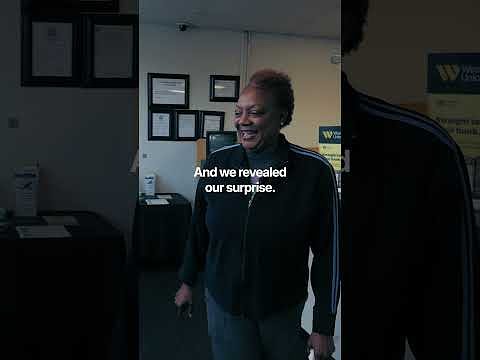
Holiday Relief or Debt Trap? Lender's Giveaway Faces Scrutiny
Advance America's $1,000 shopping spree sweepstakes aims to ease holiday financial stress. But critics question whether such initiatives address root problems or perpetuate reliance on high-cost lending.
Holiday Relief or Debt Trap? Lender's Giveaway Faces Scrutiny
NEW YORK, NY – November 20, 2025
A Season of Financial Strain
The holiday season, traditionally a time of joy and giving, is increasingly marked by financial anxiety for many Americans. Forecasts for the 2025 holiday shopping season predict record-breaking retail sales exceeding $1 trillion, but beneath the surface, a growing number of consumers are struggling to afford gifts and celebrations. Rising inflation, persistent debt, and economic uncertainty are creating a perfect storm of financial stress, pushing more families to rely on credit and potentially predatory lending practices. A recent survey revealed that nearly half of Americans feel stressed about affording the holidays this year, and 47% anticipate incurring debt to cover expenses.
Into this challenging landscape steps Advance America, a leading consumer lender, with its ‘Making the Holidays Work’ sweepstakes. The initiative offers ten winners a $1,000 shopping spree, framed as a gesture of community support and a helping hand during a difficult time. But the campaign has sparked debate about the role of high-cost lenders in addressing financial hardship and whether such giveaways offer genuine relief or simply perpetuate a cycle of debt.
Balancing Support with Scrutiny
Advance America, which operates over 800 storefronts across 22 states, emphasizes its commitment to helping customers manage their finances. The sweepstakes is being actively promoted on its website and social media channels, with the company highlighting the positive impact the prize could have on a deserving family. “We understand the financial pressures many families face during the holidays,” a company spokesperson stated. “This sweepstakes is a small way for us to give back and help ease some of that burden.”
However, the company’s history and business model are drawing scrutiny. Advance America has faced multiple lawsuits and settlements related to its lending practices, including allegations of charging illegal fees and excessively high interest rates. Past legal actions resulted in settlements totaling millions of dollars, and the company has been criticized for targeting vulnerable populations with short-term, high-cost loans. While the sweepstakes may offer immediate relief to a few lucky winners, critics argue that it does little to address the underlying systemic issues that contribute to financial instability.
“It's a classic case of applying a band-aid to a gaping wound,” says one financial analyst. “Offering a $1,000 shopping spree is a nice PR move, but it doesn't address the reasons why people are struggling financially in the first place. It might even encourage them to take on more debt, thinking they have a safety net.”
A Complex Landscape of Financial Inclusion
The debate surrounding Advance America’s sweepstakes reflects a broader tension between the need for financial inclusion and the risks of predatory lending. Millions of Americans lack access to traditional banking services and rely on alternative financial products, such as payday loans and installment loans, to cover unexpected expenses. While these products can provide a lifeline in emergencies, they often come with exorbitant fees and interest rates, trapping borrowers in a cycle of debt.
“The problem is not just access to credit, but access to affordable credit,” explains one advocate for financial literacy. “People need access to financial education, counseling, and affordable loan products that help them build wealth, not just survive from paycheck to paycheck.”
Several initiatives are underway to promote financial inclusion and responsible lending. These include efforts to expand access to affordable banking services, increase financial literacy, and regulate predatory lending practices. Some states have implemented caps on interest rates and fees, while others are exploring alternative lending models, such as community development financial institutions (CDFIs) and credit unions.
“There is a growing recognition that financial inclusion is not just a matter of economic development, but also of social justice,” says one community organizer. “Everyone deserves access to safe, affordable financial products and services that help them achieve their goals.”
The Human Cost of Financial Stress
Beyond the statistics and policy debates, the reality of financial stress is deeply personal. Katina Clark, the first winner of Advance America’s sweepstakes, exemplifies the struggles faced by many Americans. “I was so surprised and grateful when I found out I had won,” she said in a statement released by the company. “This money will really help me provide a nice Christmas for my family.”
While Clark’s story is uplifting, it is important to remember that she is just one individual. Millions of others are facing similar challenges, struggling to make ends meet and provide for their families. The holidays can be particularly difficult for those who are already financially vulnerable, exacerbating feelings of stress, anxiety, and despair.
Addressing this requires a multi-faceted approach, including providing immediate relief to those in need, promoting financial literacy, and addressing the systemic factors that contribute to financial instability. It also requires a critical examination of the role of corporations in addressing social problems and ensuring that their initiatives are genuinely beneficial to the communities they serve.
